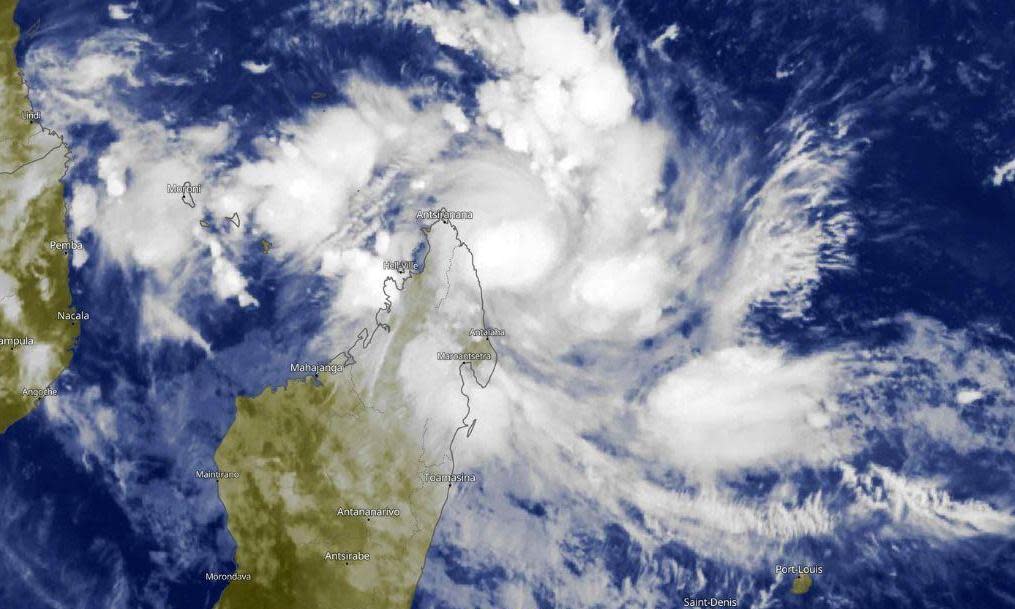Weather tracker: Cyclone Gamane unexpectedly veers into Madagascar

Madagascar was unexpectedly hit by Cyclone Gamane as it veered into the island country’s northern district of Vohemar during the early hours of Wednesday, resulting in at least 11 deaths.
The storm was expected to skim the coast, but it changed course and went into the island causing disruption to 7,000 people with hundreds of homes destroyed. The slow-moving nature of the storm exacerbated its impact, with persistent rainfall and prolonged strong winds causing devastation to infrastructure and significant flooding. The cyclone moved across the island with an average wind speed of 93mph (150km/h) while gusts of up to 130mph were recorded, making it a category 1 storm on the Saffir-Simpson scale. Cyclone Gamane has since weakened to a tropical storm and is expected to clear the island on Friday.
In the same week, significant flash floods and a landslide in Indonesia left at least 19 people dead with seven others missing. Mud, rocks and uprooted trees crashed down a mountainside on the island of Sumatra, engulfing villages in the western Pesisier Selatan district late last Friday after torrential rains. Rescue operations were disrupted by power cuts as more than 80,000 people fled to temporary government shelters.
The Iberian peninsula experienced unseasonably high temperatures last week caused by hot southerly winds, known as the Calima, which also brought up a significant amount of dust from the Sahara. This resulted in orange-coloured skies and degraded air quality on 21 March. Nasa’s Terra satellite captured images of dust across the peninsula the next day, as snowy slopes at a ski resort near Granada were tinged brown, while other areas experienced murky rain. Fresher, maritime air has since moved in across the peninsula clearing the dust farther east across the Mediterranean into Greece.
People in Athens woke up to a thick haze on Thursday. The persistent strong southerly winds moved east across the Mediterranean, bringing dust from the Sahara across Greece. These winds also resulted in unusually high temperatures: Wednesday recorded the highest March temperature since 2009 in central Athens with a high of 25.3C. Temperatures at Heraklion airport, Crete, soared to 30C on the same day, the hottest March temperature there since 2008.


